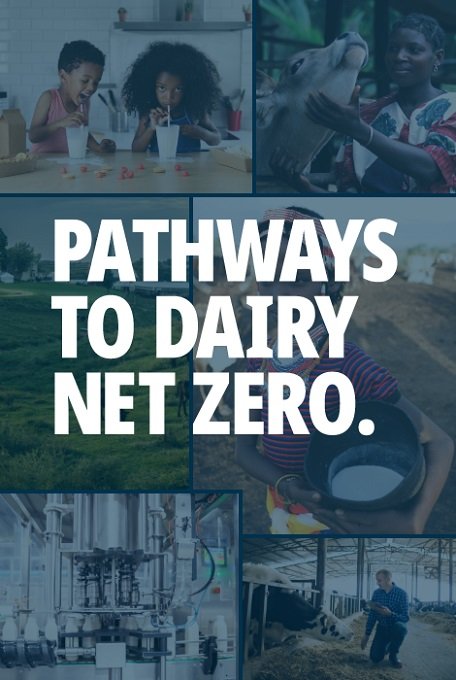Saturday, 28 February 2026
Leading dairy support global Pathways to Dairy Net Zero climate initiative
The new initiative, which aims to accelerate climate change action and reduce greenhouse gas (GHG) emissions across the dairy sector, is already backed by organizations representing approximately 30 percent of…

The new initiative, which aims to accelerate climate change action and reduce greenhouse gas (GHG) emissions across the dairy sector, is already backed by organizations representing approximately 30 percent of global milk production.
Pathways to Dairy Net Zero, a ground-breaking new climate initiative, is launching today during Climate Week and just prior to the United Nations (UN) Food Systems Summit. Forty leading organizations, including 11 of the 20 largest dairy companies in the world, have already declared their support for the effort. Collectively, these supporters represent approximately 30 percent of total milk production worldwide.
The new climate initiative demonstrates the global dairy sector’s commitment to reducing GHG emissions while continuing to produce nutritious foods for six billion people and provide for the livelihoods of one billion people.
“Pathways to Dairy Net Zero will accelerate climate efforts already underway and drive further necessary action to reduce dairy’s emissions over the next decades. The dairy sector has a lot to offer to lead this transition,” said Hein Schumacher, Chief Executive Officer of Royal FrieslandCampina and Chairman of Global Dairy Platform.
“Mengniu is proud to join the global dairy sector in uniting behind this effort, the first of its kind in agriculture, because we must all do our part to meet this worldwide climate challenge,” said Minfang (Jeffrey) Lu, Chief Executive Officer and Executive Director of China Mengniu Dairy Company.
The initiative is underpinned by six key principles:
- Continuing to improve production and process efficiency to further reduce the GHG emissions intensity of milk and dairy products.
- Greenhouse gas removals. Enhancing production practices that protect carbon sinks (soil, forests, grass, peatlands) and complement natural ecosystems.
- Avoidance and adaptation. Improving practices such as feed, manure, fertilizer and energy management.
- Insets and offsets. Identify and implement alternative, credible reduction options.
- Measurement and monitoring. Measuring greenhouse gas emissions to plan mitigation and monitor progress.
- Overall support. Promoting the global initiative and emphasizing the dairy sector’s climate ambition.
Technology
Ingredion Thailand Achieves 100% Sustainably Sourced Cassava
Feb 27, 2026 | Company News
Deakin University and Bellarine Foods Partner to Develop Sustainable Marine-Derived Proteins
Feb 26, 2026 | Australia
Royal Unveils Refreshed Jute Bag Design for 20lb Authentic Basmati
Feb 25, 2026 | Company News
Food Testing
Australian Medical Bodies Push for Compulsory Health Star Labelling
Feb 24, 2026 | Australia
Tim Hortons Singapore Secures Majlis Ugama Islam Singapura Halal Certification Ahead of Ramadan
Feb 23, 2026 | Company News
More Popular
Fagron Acquires Pharmavit Europe for €68Mn to Expand Nutraceutical Portfolio
Feb 27, 2026 | Company News
Arla Foods Invests EUR 300Mn in New Cheese Dairy in Sweden
Feb 27, 2026 | Company News
Beyond Meat Broadens Portfolio Beyond Protein with Sparkling Plant-Based Drink Line
Feb 27, 2026 | Beverages






